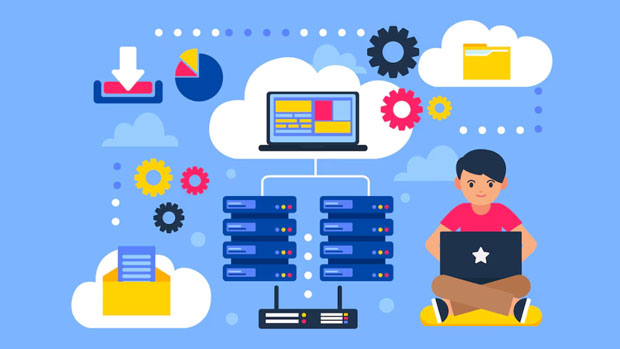When it comes to reliable and efficient proxy services, PYPROXY stands out with its wide range of plans that cater to various business and individual needs. Whether you're seeking enhanced security, high-speed data access, or scalability, PyProxy offers flexible packages designed to meet the demands of modern internet users. The available proxy plans are tailored for different use cases, such as web scraping, online anonymity, or handling high traffic volumes. In this article, we will explore the different proxy packages offered by PyProxy, focusing on their features, benefits, and best-use scenarios. 1. The Essential Proxy Plan: Ideal for Small-Scale NeedsThe Essential Proxy Plan is the most basic offering from PyProxy, designed to meet the needs of individuals or small businesses that require proxies for simple tasks. This plan offers a basic level of anonymity and reliability, making it perfect for tasks such as accessing region-blocked content or browsing with minimal risk of detection. Typically, it includes a limited number of IP addresses and access to a specific region or network.Features of the Essential Proxy Plan:- Limited number of IPs (usually around 10-50 IP addresses)- Basic security features such as IP masking and encryption- Limited bandwidth usage and speed- Ideal for individual users or small businesses with minimal proxy requirements- Basic customer support optionsBest Use Cases:- Casual browsing and accessing geo-restricted content- Small-scale market research or web scraping tasks- Maintaining privacy for personal browsingFor those who do not need advanced features and are primarily focused on privacy with minimal additional resources, this plan is an excellent entry-level option.2. The Advanced Proxy Plan: For Businesses with Growing NeedsThe Advanced Proxy Plan is designed for growing businesses or more demanding individual users who need better reliability and more features than the Essential plan offers. This package provides a broader range of IPs, faster speeds, and more advanced features. It’s perfect for businesses that need to perform large-scale data scraping, manage social media accounts with higher security, or access content from multiple regions.Features of the Advanced Proxy Plan:- A larger number of IP addresses (ranging from 100 to 500)- Higher bandwidth and faster connection speeds- Access to a wider range of geographical locations- Enhanced security features, including rotating IPs and IP whitelisting- Dedicated customer support for more complex issues- Usage analytics and reports for tracking performanceBest Use Cases:- Large-scale web scraping operations- Managing multiple social media accounts securely- Accessing content from diverse geographical locations- Handling business data or analytics securelyThis plan is a step up for users who need more scalability, improved security, and broader accessibility without going all-in on a top-tier plan.3. The Premium Proxy Plan: High-Speed, High-Security for Large-Scale OperationsThe Premium Proxy Plan is the most robust and feature-rich offering from PyProxy, designed for enterprises, large-scale data collectors, or anyone needing high-speed, high-security proxy access. This plan includes the maximum number of IP addresses, the highest available speeds, and advanced security features to support complex operations. It’s built for heavy-duty usage, such as large-scale web scraping, automated tasks, or managing hundreds of user accounts across multiple platforms.Features of the Premium Proxy Plan:- Unlimited number of IP addresses- Extremely high bandwidth and fast connection speeds- Access to global proxy networks with multiple geographical locations- Advanced security, including rotating IPs, dedicated proxies, and encrypted connections- High-level customer support with dedicated account managers- Real-time performance monitoring and analytics tools- API integration for automating proxy managementBest Use Cases:- Large-scale web scraping across multiple regions- Automation of business tasks and managing high volumes of data- Operations requiring the highest security and anonymity levels- Complex applications like managing multiple accounts, bots, or automation toolsThis plan is ideal for large enterprises or users who require maximum resources, superior security, and the flexibility to scale operations without limitations.4. The Custom Proxy Plan: Tailored Solutions for Unique NeedsIn addition to the standard plans, PyProxy also offers the option for Custom Proxy Plans. These plans are highly flexible and can be tailored to meet the specific needs of clients with unique requirements. Whether a business needs to integrate a specific number of proxies into their existing system or wants a bespoke security setup, this plan provides the ultimate customization.Features of the Custom Proxy Plan:- Customizable number of IP addresses based on needs- Flexible bandwidth and speed options- Ability to choose specific geographical locations and networks- Tailored security features based on user requirements- Custom customer support options, including 24/7 availability- Options for advanced API integration, automated tasks, and custom proxiesBest Use Cases:- Businesses with unique needs such as accessing private or restricted networks- High-security requirements for sensitive data management- Custom integrations for large businesses, including API-based operations- Specialized proxy needs that fall outside typical use casesThis plan is perfect for clients who have specific, high-demand requirements that cannot be met by standard proxy packages.5. Additional Considerations When Choosing a Proxy PlanWhen selecting the right proxy plan, there are a few additional factors to consider that can help you optimize your investment:- Geographical Coverage: Depending on the nature of your work, you may need proxies from specific countries or regions. PyProxy offers various geographical locations, so make sure to choose a plan that covers the regions you need.- Speed and Bandwidth: If you’re handling large volumes of data or conducting high-frequency tasks, speed and bandwidth are crucial factors. The higher-tier plans provide more bandwidth and faster speeds, essential for large-scale operations.- Security Features: If you’re handling sensitive data, consider the security options offered, such as IP rotation, encrypted connections, or dedicated proxies. Higher-tier plans usually provide more robust security.- Support and Service: Premium plans offer dedicated customer support and account management, ensuring your operations run smoothly. For businesses with complex needs, this is an essential consideration.Conclusion: Choosing the Right Proxy Plan for Your NeedsPyProxy’s suite of proxy plans is designed to cater to a wide range of use cases, from individual users needing basic privacy features to large enterprises requiring scalable, high-speed, and secure proxy solutions. When choosing the right plan, consider your specific needs, such as the scale of your operations, geographical requirements, and security concerns. By understanding the features and benefits of each plan, you can make an informed decision that aligns with your business goals and provides the necessary tools for success in today’s digital landscape.By investing in the right PyProxy plan, you gain access to a powerful set of tools that can support everything from personal privacy to large-scale data operations, ensuring your online tasks are handled efficiently and securely.
Aug 20, 2025



































































